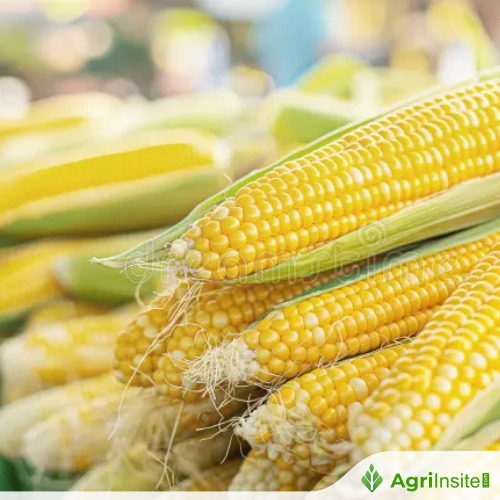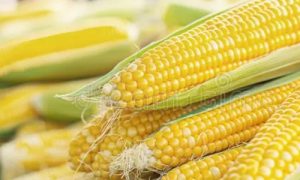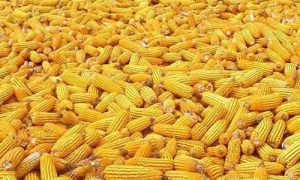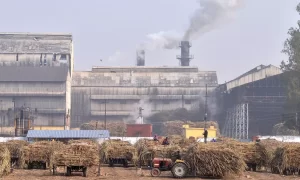India-US trade talks in final stages, withdrawn NITI Aayog paper shifts focus to GM soybean, corn

NITI Aayog has withdrawn a working paper advocating agricultural trade concessions to the US, including imports of GM soybean and corn. The move follows strong opposition from farmer groups like BKS and BKU, citing food safety and self-sufficiency concerns. Critics say such policies contradict India’s push for domestic edible oil production.
New Delhi: Less than a month after its publication, a working paper on India-US trade by government think tank NITI Aayog batting for agricultural concessions to America has been quietly withdrawn.
Published in May, the working paper titled ‘Promoting India-US Agricultural Trade under the new US Trade Regime’ invited backlash from several farmers’ groups including the Bhartiya Kisan Union (BKU) and the RSS-affiliated Bharatiya Kisan Sangh (BKS), particularly over the suggestion of importing genetically modified (GM) soybean and corn for oil extraction.
Several additional recommendations were made in the working paper, including lowering duties on non-sensitive US imports like almonds and apples that do not threaten domestic farmers. Medium- and long-term reforms were also encouraged, specifically improving logistics, post-harvest infrastructure, warehousing and cold chains.
“Our main contention is the importing of GM food,” BKS general secretary Mohini Mohan Mishra told ThePrint Wednesday, emphasising that India prohibits the import of genetically modified food without specific approvals. “In August 2020, the Food Safety and Standards Authority of India (FSSAI) issued a notification stating that all imported food should have a non-GM sourced certificate. So, the paper’s suggestion is essentially illegal,” he added.
The working paper provided an assessment of India’s agricultural trade relationship with the US amid President Donald Trump’s announcement of reciprocal tariffs. Historically, India has maintained a trade surplus in agriculture with the US, but the importance of it in bilateral trade is reducing.
India and the US are trying to hammer out a trade agreement before 9 July, which is the deadline for country-specific reciprocal tariffs. Currently, an Indian delegation is in Washington for negotiations. On Tuesday, Trump without going into the specifics said the US and India will soon finalise a trade deal with “much lower tariffs”.
Authored by economists Ramesh Chand and Raka Saxena, the NITI Aayog working paper suggested both concessions on the import of soybean oil from the US and the import of soybean seed— a GM crop—for extracting oil for domestic consumption. The residue from this extraction would be exported overseas where this is a demand, while also avoiding the infiltration of genetically modified food in the domestic market.
“The second point is that if the government’s direction is to be self-sufficient in edible oil, then how can you import it,” Mishra said, adding that the government needs to fix procurement or give incentives to farmers to achieve this self-sufficiency. “Its possible, you just need a policy in place to achieve this.”
Mishra went on to recall that the government had earlier reduced the import duty on palm oil. The influx of imported palm oil resulted in a domestic price reduction, further discouraging farmers from producing more oil, he said. “These policies are contradictory in nature, to the government’s own vision of self-sufficiency.”
A NITI Aayog official told ThePrint on condition of anonymity that “due to some limitations observed in the analysis, the paper was withdrawn by the authors a couple of days back and the same is mentioned in the NITI portal where this paper was loaded”.
The working paper also analyzed trade trends, key export and import commodities (shrimp, rice, honey, and nuts), competitiveness metrics, tariff and non-tariff barriers, and the structural shifts in agri-trade patterns.
On Monday, Congress media in charge Jairam Ramesh flagged that NITI Aayog had withdrawn “this innocuous looking paper” on India US agri trade.
Mishra took the opportunity to further question the government, stating that the goal is to create a “level-playing field” in the international market, but the reality of farmers in India and the US were vastly different.
“In the US, if the minimum landholding of farmers is 1,000 hectares, here 80-90 percent of farmers have less than 1 hectare of land,” he said, clarifying that the Rs 6,000 import subsidy under the Narendra Modi government was helpful, but it should be doubled.
To Read more about Maize News continue reading Agriinsite.com
Source : The Print














